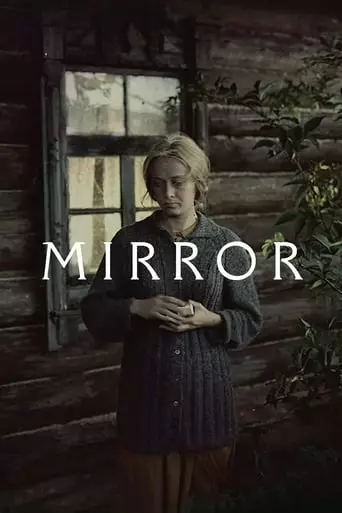
The Mirror (1975) Watch Online Free
A dying man in his forties recalls his childhood, his mother, the war and personal moments that tell of and juxtapose pivotal moments in Soviet history with daily life.
Andrei Tarkovsky’s Mirror (1975) is a haunting, introspective exploration of memory, identity, and the passage of time. The film defies traditional narrative structures, instead offering a fragmented, nonlinear collage of scenes that weave between personal memory, historical events, and fleeting moments of quiet contemplation. The protagonist, Alexei, is a middle-aged man reflecting on his childhood, his relationship with his mother, and his personal failings as a father and husband. Tarkovsky uses his character’s memories and visions to explore broader themes of alienation, lost innocence, and the weight of personal and collective history.
The film opens with an unsettling scene of a boy being hypnotized, a sequence that hints at themes of memory and self-awareness. This is followed by the fragmented recollections of Alexei’s past: his childhood in a tumultuous Russia, his strained relationships, and the complex dynamics of his family. Through Tarkovsky’s signature long takes and minimal dialogue, the film focuses on the sensory experience of life, highlighting moments of stillness that allow the viewer to delve deeper into the emotional undercurrents of Alexei’s memories.
The structure of the film is deliberately non-linear, jumping between various moments in time, both in the present and the past. This creates a disorienting yet poetic effect, with characters sometimes appearing in multiple phases of their lives, portrayed by the same actors. This blurring of time reflects the film’s primary thematic concern: the cyclical, often elusive nature of memory, and the emotional scars that linger through time.
Mirror is an exploration of the human condition through the lens of memory and time. Tarkovsky captures the fleeting nature of life and the emotional turbulence that comes with introspection. The film is deeply personal, offering a window into the mind of its protagonist, but it also touches on broader existential themes—such as the tension between the private and public self, the complexity of relationships, and the inevitability of time’s passage.
The film’s imagery often mirrors the emotional states of the characters, with water, fire, and natural landscapes serving as metaphors for inner turmoil and transformation. Tarkovsky’s use of historical footage, particularly of wartime events, reflects the personal and collective trauma of Russian society. Mirror is not just a personal narrative but a meditation on the nature of human existence, inviting viewers to reflect on their own memories and experiences.
The film’s deliberate pacing and fragmented structure can be challenging for some viewers, but it ultimately rewards those who are willing to immerse themselves in its dreamlike atmosphere. Tarkovsky’s approach to time—distorting it, stretching it, and breaking it—gives the viewer a sense of the fluidity of life, reinforcing the theme that time is not linear but cyclical and unpredictable.
Watching Mirror is an emotional and intellectual experience that leaves an indelible mark. The film’s introspective nature encourages viewers to reflect on their own lives, memories, and emotional connections. The lack of a clear, linear narrative means that viewers may feel disoriented at first, but as the film progresses, the emotional depth of the protagonist’s journey becomes more apparent. The film’s cyclical nature mirrors the way we process time and memory in real life—often fragmented, sometimes incoherent, yet deeply meaningful.
Ultimately, Mirror offers a sense of melancholy and beauty. It evokes a sense of longing for lost time and lost innocence, and viewers may feel both saddened and enriched by the profound philosophical questions it raises about life, identity, and our relationship with the past.
